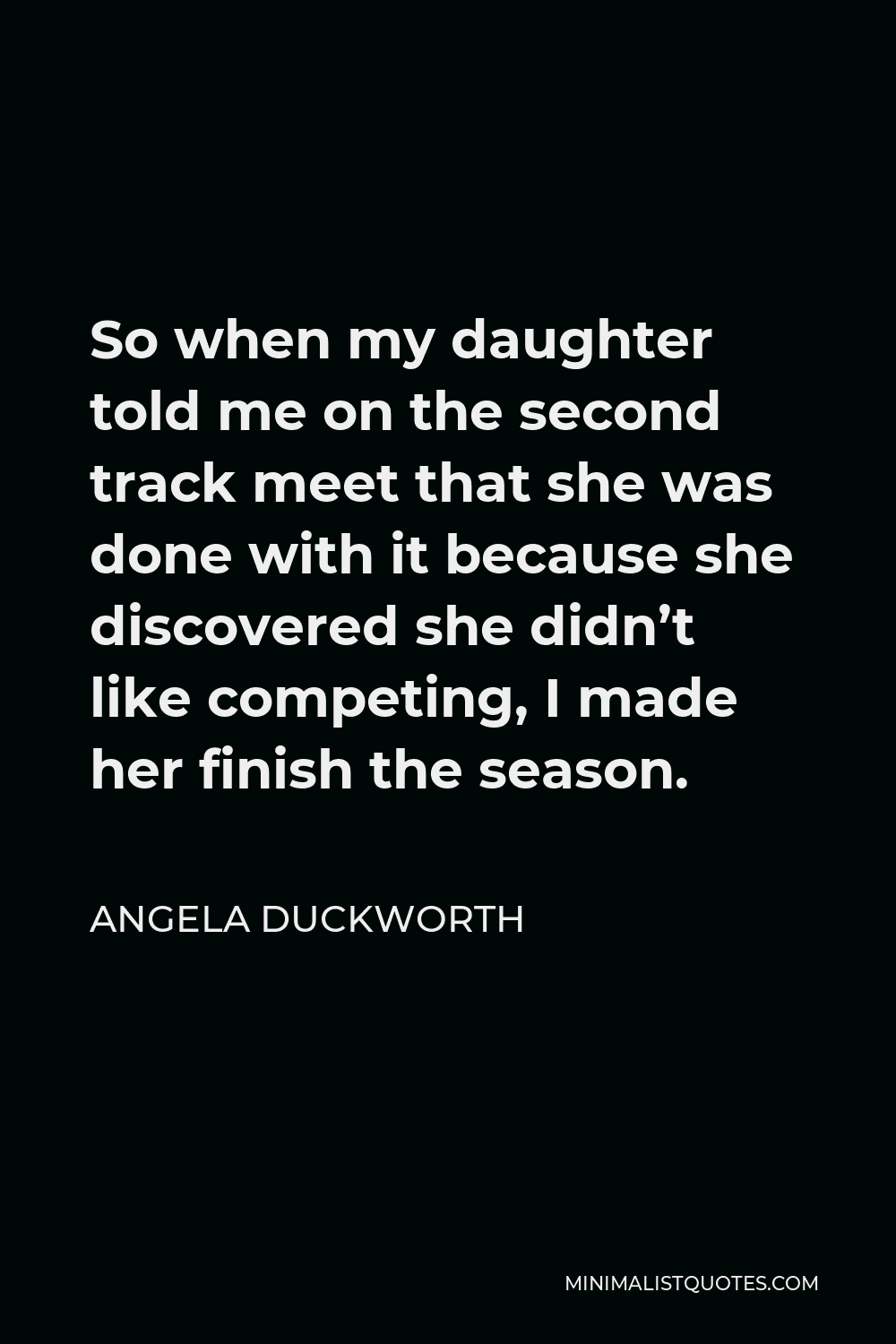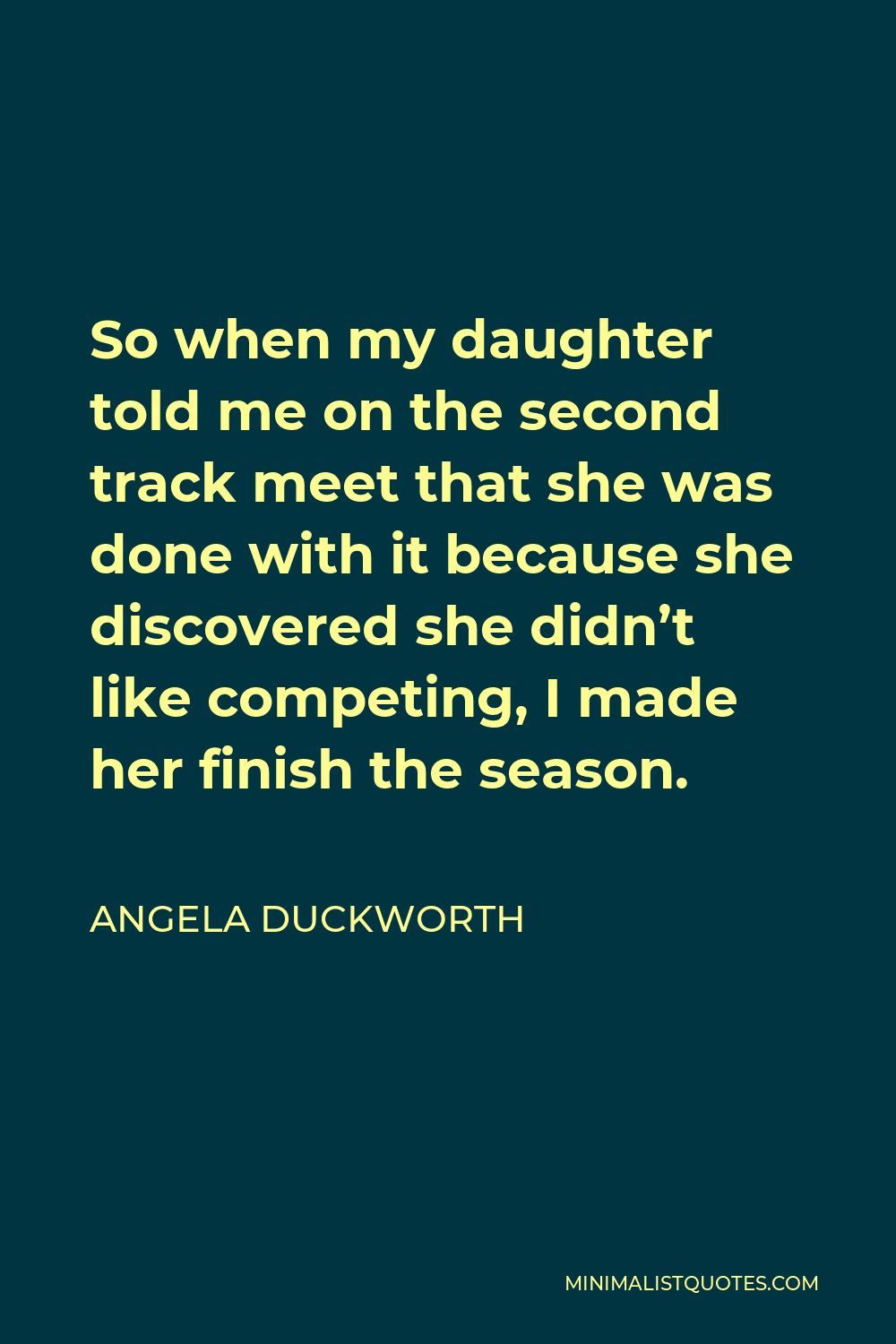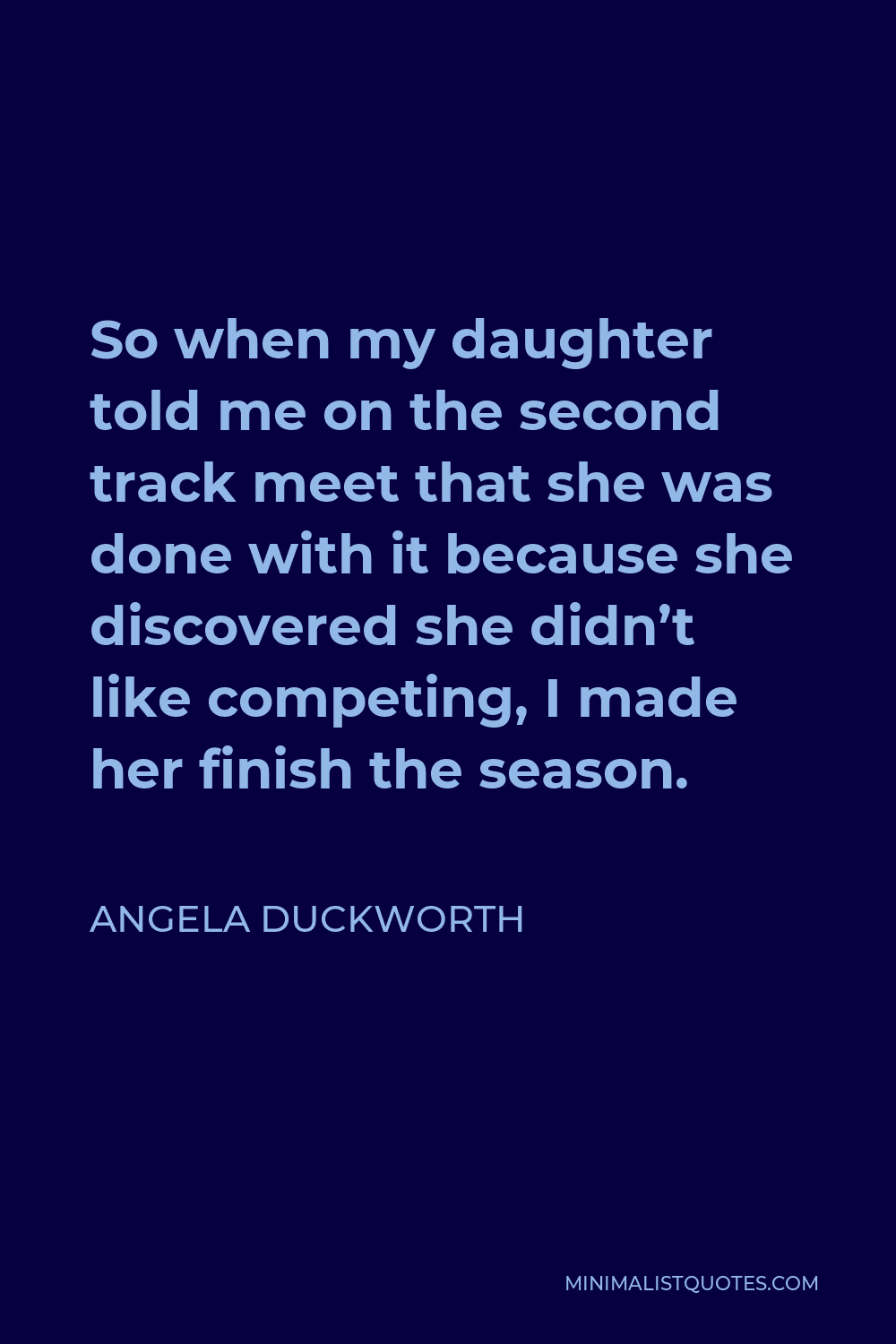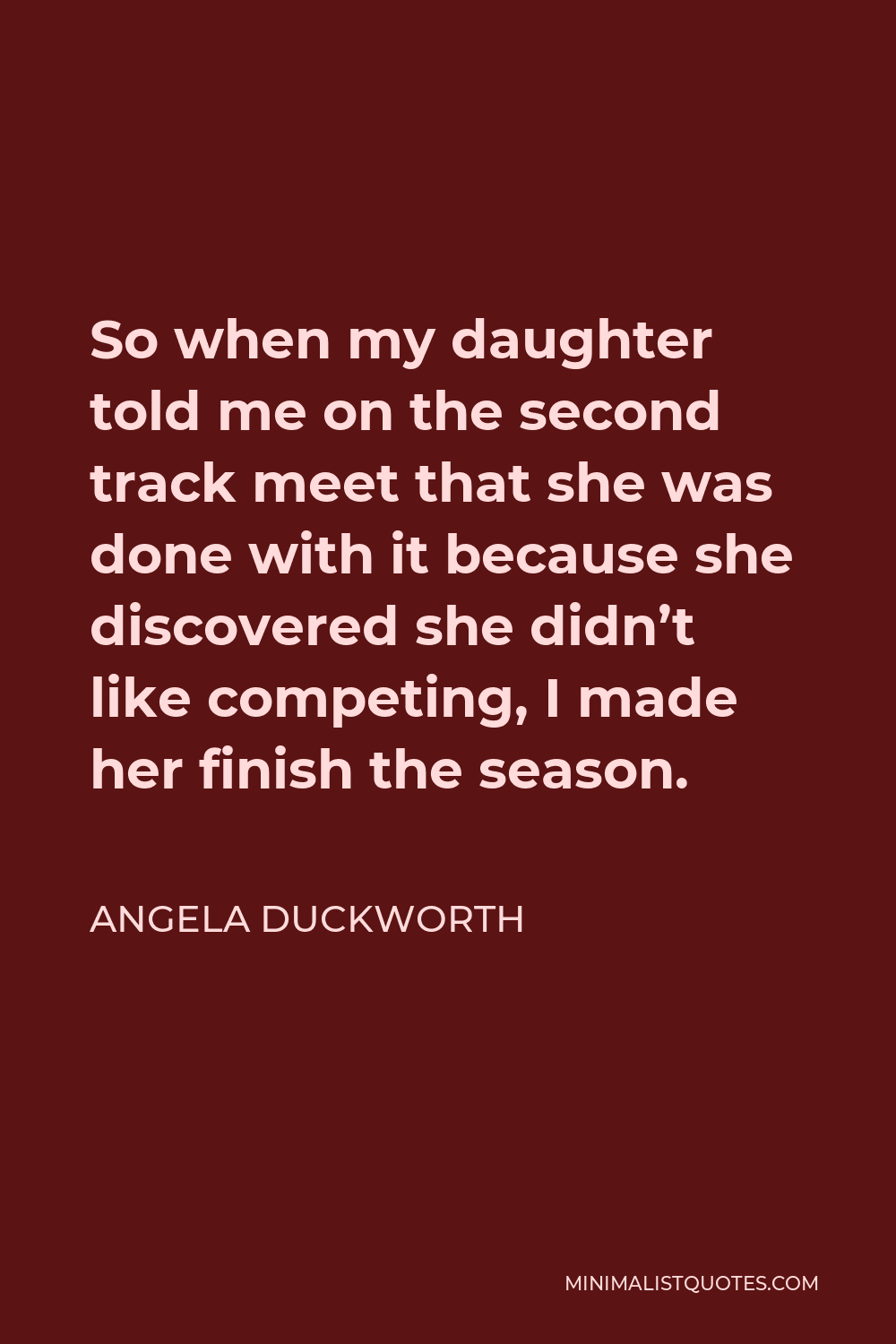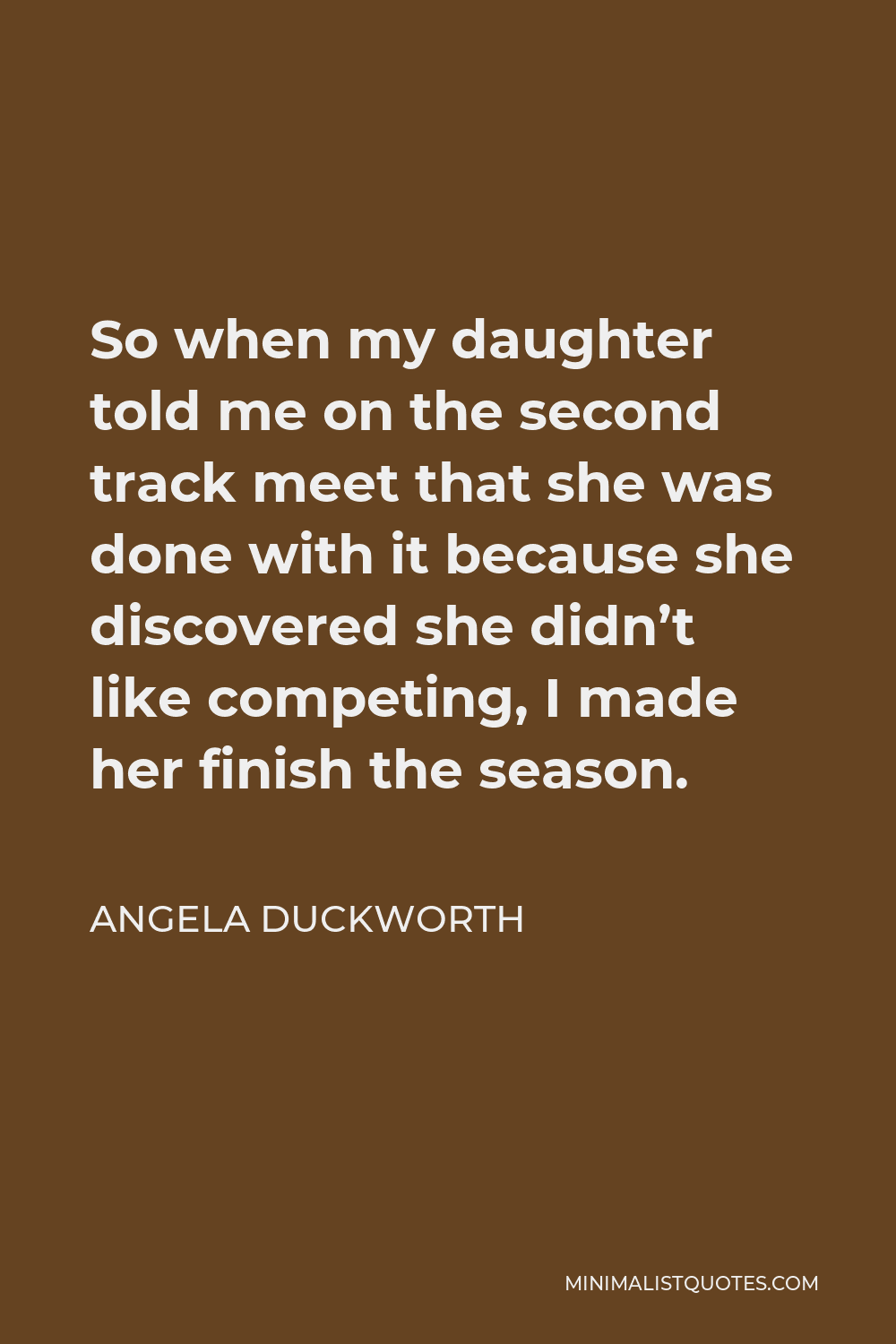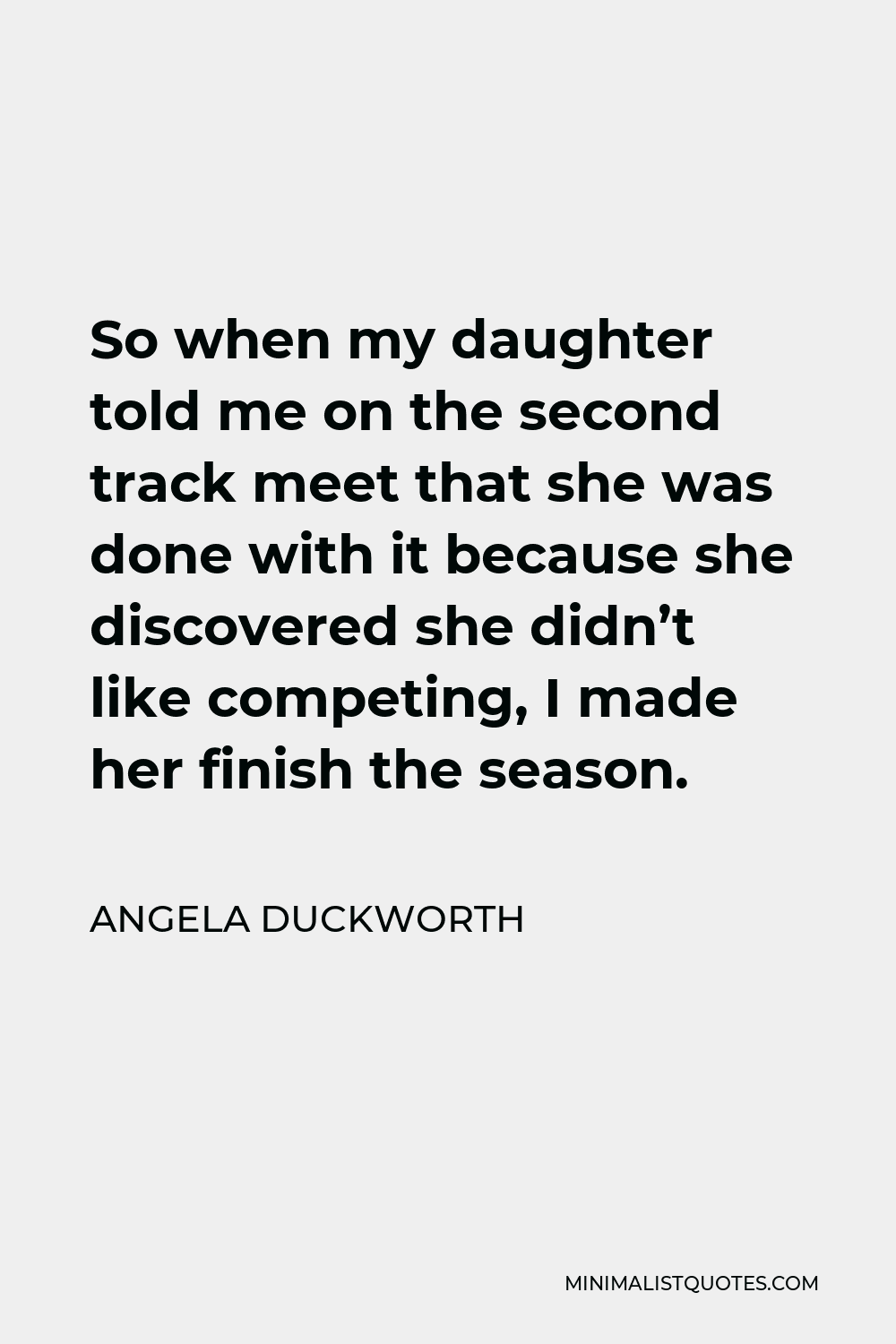Most teachers, when surveyed, say that it is part of their job to help students develop things like grit. This is especially true at the elementary and middle school levels. They feel it’s part of their vocation to teach other things that are not formally academic content.
ANGELA DUCKWORTHSo when my daughter told me on the second track meet that she was done with it because she discovered she didn’t like competing, I made her finish the season.
More Angela Duckworth Quotes
-







-





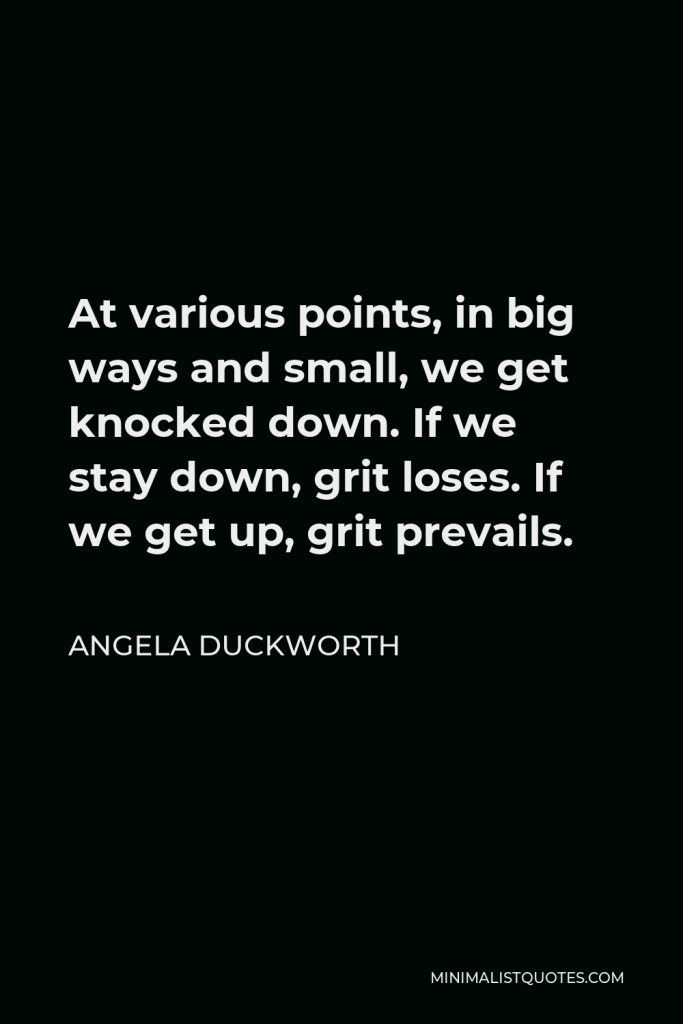

At various points, in big ways and small, we get knocked down. If we stay down, grit loses. If we get up, grit prevails.
ANGELA DUCKWORTH -





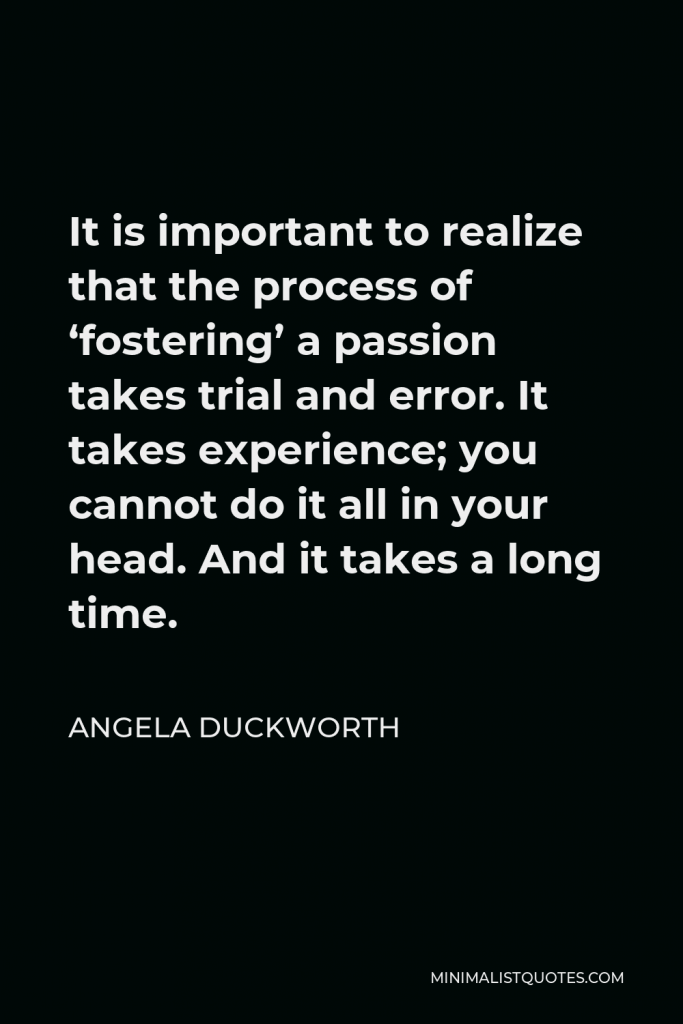

It is important to realize that the process of ‘fostering’ a passion takes trial and error. It takes experience; you cannot do it all in your head. And it takes a long time.
ANGELA DUCKWORTH -







I worked hard when I was a consultant. I worked hard when I was in graduate school looking at neuroscience.
ANGELA DUCKWORTH -





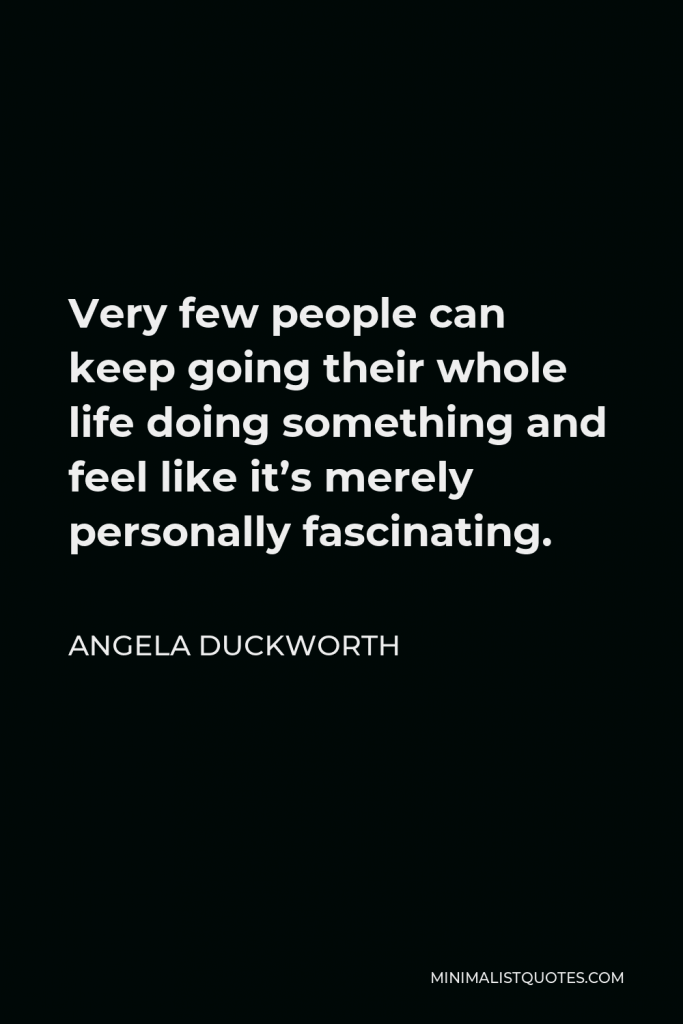

Very few people can keep going their whole life doing something and feel like it’s merely personally fascinating.
ANGELA DUCKWORTH -





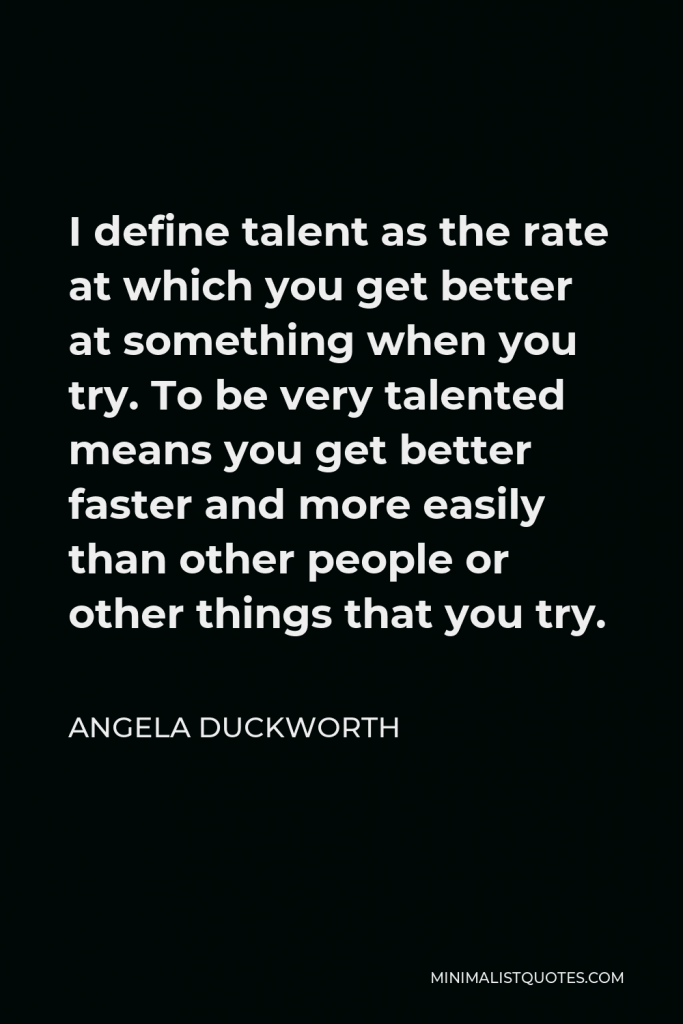

I define talent as the rate at which you get better at something when you try. To be very talented means you get better faster and more easily than other people or other things that you try.
ANGELA DUCKWORTH -







I know a lot of CEOs who are looking for three- to four-year varsity athletes – not necessarily because these people are going to be doing pushups or spiking volleyballs in the workplace, but because they’re looking for that continuity, that person who was gritty about something.
ANGELA DUCKWORTH -







Striving is exhausting. Sometimes I do say things like, ‘I wish I were not quite this driven to be excellent.’ It’s not a comfortable life. It’s not relaxed. I’m not relaxed as a person. I mean, I’m not unhappy. But… it’s the opposite of being comfortable.
ANGELA DUCKWORTH -







I don’t spend a lot of time thinking about my genes because I can’t do anything about them.
ANGELA DUCKWORTH -







Boredom is a very self-conscious emotion by definition. Interest is not. So you can actually be completely absorbed in something and, at certain points in your development, not even realize that you’re into it.
ANGELA DUCKWORTH -







Substituting nuance for novelty is what experts do, and that is why they are never bored.
ANGELA DUCKWORTH -





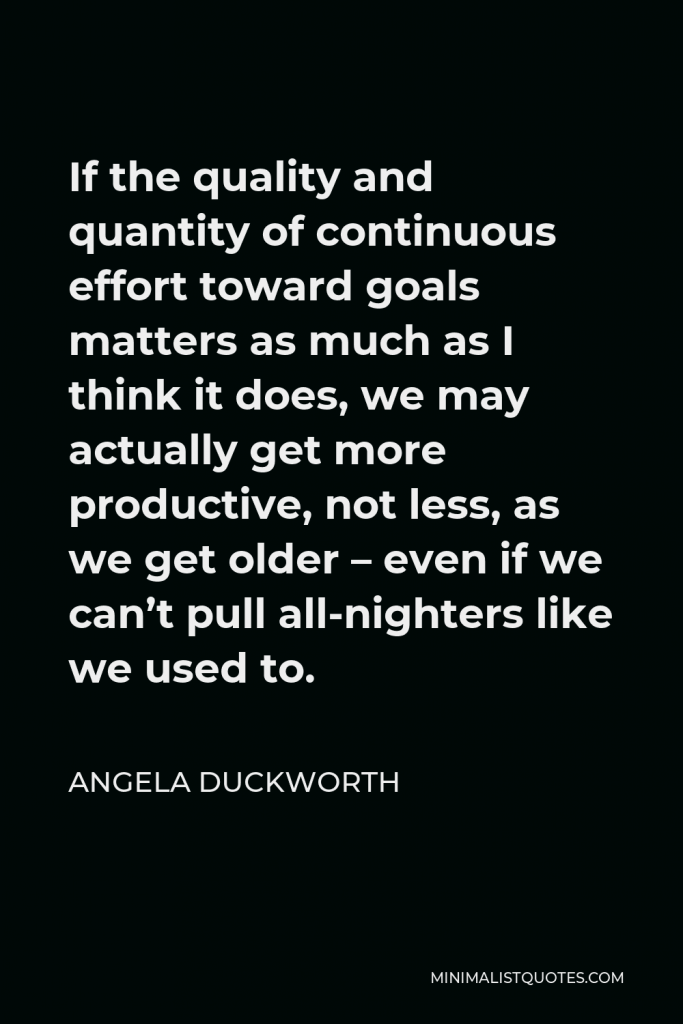

If the quality and quantity of continuous effort toward goals matters as much as I think it does, we may actually get more productive, not less, as we get older – even if we can’t pull all-nighters like we used to.
ANGELA DUCKWORTH -







People’s lives really do turn out differently. And it certainly can’t be explained by how intelligent you remember them being when they were sitting next to you in organic chemistry class.
ANGELA DUCKWORTH -





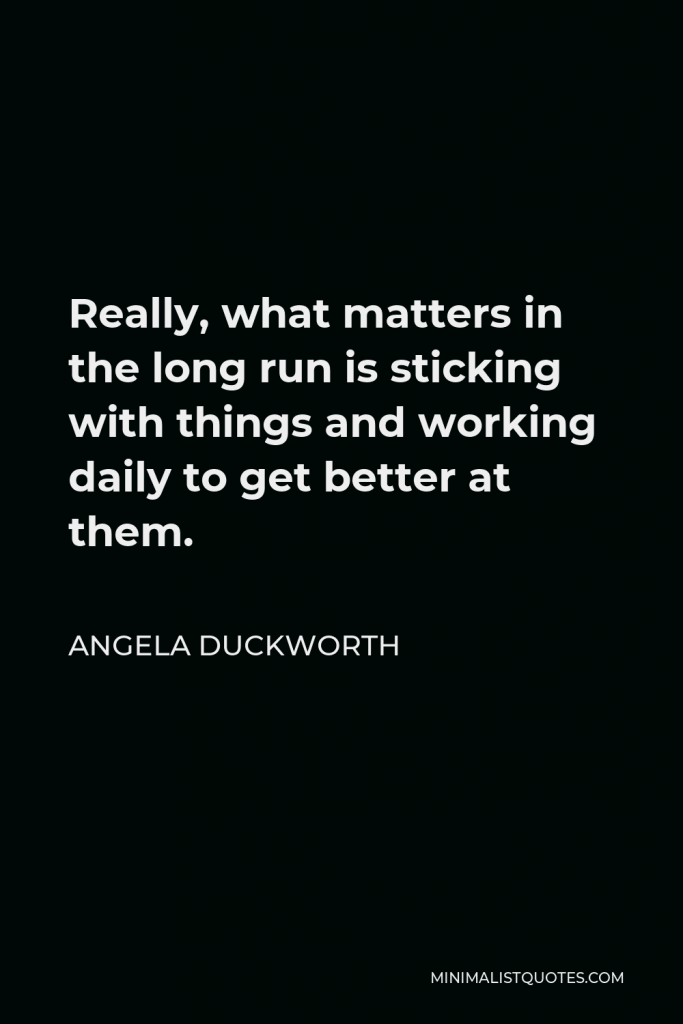

Really, what matters in the long run is sticking with things and working daily to get better at them.
ANGELA DUCKWORTH -







During all my undergrad years and in high school, I was involved in tutoring and public service. At Harvard, I spent over 35 hours a week doing service. I was a Big Sister, I worked for the homeless, the elderly; it was the epicenter of my focus.
ANGELA DUCKWORTH -







I don’t think that every child in America is going to necessarily aspire to, you know, a four-year degree from a liberal arts college or a certain kind of life. I think that people should learn to be excellent in the thing that they choose to do.
ANGELA DUCKWORTH
